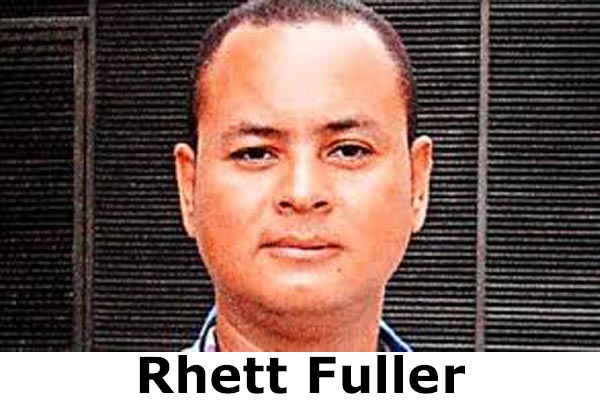Today, businessman Rhett Fuller, 42, who was fighting extradition for 15 years on proceedings initiated by the United States of America, and his family experienced long-awaited ecstasy when Minister of Foreign Affairs, Hon. Wilfred “Sedi” Elrington, announced that he did not see it fit to send Fuller to the US to answer to charges of homicide in that country.
The US had asked for Fuller’s extradition on charges of first degree murder in connection with the death of Larry Miller, which occurred during a robbery in the southern state of Florida back in 1990.
The Government of the United States initially requested his extradition almost 16 years ago, in 1998; and the then Chief Magistrate gave the order to proceed with it in 1999; however, it was appealed in 2002.
At the time, his original attorney, Senior Counsel Eamon Courtenay, argued that the Minister of Foreign Affairs, who signed the extradition warrant, did not have the power to do so.
With the appeal pending, nothing happened and Fuller went back to having a regular, productive life in Belize.
But 6 years later – in 2008 – the appeal finally came up and Rhett Fuller was back in court fighting extradition to the United States for a crime he was accused of 18 years before.
Since that time, there has been a sort of never-ending back and forth in the courts, as Fuller and his legal team fought the extradition request “tooth and nail,” utilizing every legal avenue available. The case actually went from the Supreme Court, to the Court of Appeal, and finally it went all the way to the Privy Council, where Fuller’s appeal was refused.
In 2011, Supreme Court Justice Samuel Awich denied Fuller’s request for a stay of extradition, and said that then Foreign Minister Wilfred Elrington’s warrant was valid, and that Fuller should return to prison to await his surrender to authorities for extradition. He had been granted bail in 2009, but now that bail was revoked.
Two years later in July of 2013, the Court of Appeal allowed the appeal of Minister Elrington’s 2011 decision to surrender Fuller to the US. The main grounds on which the Court allowed Fuller’s appeal were that the Minister, within his wide jurisdiction, did not consider whether or not the delayed extradition process was unjust and oppressive to him.
Today, Fuller’s case was brought back before Foreign Affairs Minister Wilfred Elrington for a second time, and late this morning, Elrington announced that it was time for the case to be done with, rendering Fuller a free man.
Elrington told the media this afternoon that the distressing effects that Fuller’s family has experienced played a major role in the verdict to have the case struck out.
Elrington said, “I had the authority to take into consideration broadly, the interest of the country of Belize on a whole, first and foremost. Then I had to consider the interest of Mr. Fuller personally but also the interest of his wife and his children. When I considered the submissions that he made in relation to his wife and children, and his business and his experience in Belize since 1990, I formed the view that the effects of sending him back to the United States would be really devastating on his children, especially small children, the youngest of whom is autistic.”
Elrington stated that when he considered the damage that would have been done to Fuller’s children, it far outweighed the consideration of extraditing him. He said, “If we don’t send him back [to the US], it’s not going to do as much harm to the United States and to us (Belize) as it would if we were to in fact send him back.”
Elrington declared that the court system is too sluggish and overloaded and as a consequence, the case dragged on for many years, which also impacted his decision – as the relevant Minister – to free Fuller.
Elrington then made some suggestions as to what he believed can help to speed up the dispensation of justice by the Judiciary. He stated, “Courts need to work swiftly and efficiently, but for that you have to have people who work very hard and who are very smart people – people who work very conscientiously. It is only when you have that combination of people that you can move things through the court expeditiously.”
He said that nowadays, there are lawyers who deliberately stall the judicial process by filing successive appeals so the court cases are taking much longer than when he first became a lawyer 30 odd years ago.

